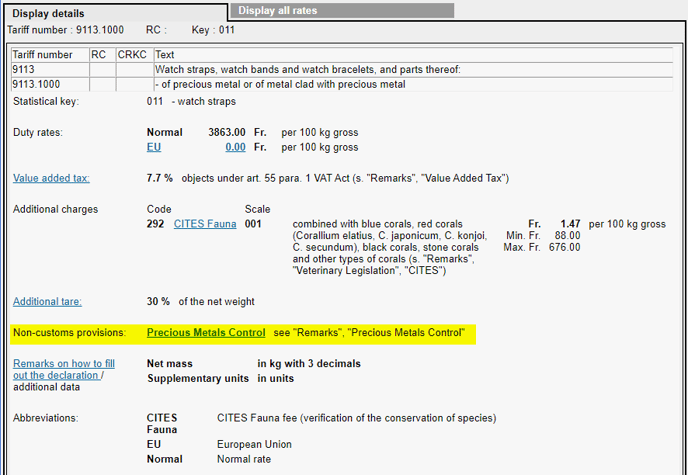How do I as an e-commerce merchant deal with precious metals control when exporting to Switzerland?
Discover the key strategies at a glance to overcome the challenges of precious metals control in Switzer-land.
What is precious metals control in Switzerland and why is it important?
Precious metals control is an integral part of Swiss trade policy which serves to guarantee the quality and value of products containing precious metals. It helps consumers to ensure that they get exactly what they purchase.
Why do I need to know about these controls as an e-commerce merchant?
As an e-commerce merchant, you must know the regulations surrounding precious metals control if you want to export your goods to Switzerland. Any violation may result in penalties and delays to your import. Conversely, complying with the rules can increase customer trust in your products.
If you want to go straight to the big picture to find out more details, you can head over to our blog article “Trust is good, precious metals control is better”.
What does the Precious Metals Control Act mean for my export?
The Swiss Precious Metals Control Act determines which products are controlled and how these controls are carried out. Knowledge of and compliance with these regulations is crucial to a seamless export process.
Which products are subject to precious metals control?
Precious metals control applies to products containing gold, silver, platinum or palladium, regardless of form or purpose.
Are all precious metals affected equally?
Yes, all precious metals are affected equally. There are, however, differing test methods and standards for each metal.
How can I tell if my products are subject to precious metals control?
There are special catalogues and resources that list the categories of products subject to precious metals control. As a merchant, you should familiarize yourself with these resources and turn to experts in case of uncertainty. Here you will find a summary of the goods categories:
- Precious metal goods (incl. compound goods): these are objects made from a precious metal alloy which reaches at least one legal standard of fineness. Compound goods consist of individual pieces of various precious metals in a legal standard of fineness.
- Multi-metal articles: these are goods consisting of parts made of precious metals in a legal standard of fineness and non-precious metal, which are marked according to their actual composition.
- Plated articles: goods where a layer of precious metal is firmly attached to a base made of another material, which are marked according to their quality. The minimum layer thickness is 5 micrometres for gold, platinum and palladium and 10 micrometres for silver.
- Imitations: these are objects made of precious metals which do not reach a legal standard of fineness or meet the other material requirements of precious metal goods. These include objects equivalent to multi-metal or plated articles, but not marked as such or which do not meet the other material requirements of these goods categories.
How does the precious metals control process work?
The precious metals control process starts even before your products are dispatched. They must be appropriately labelled and declared and be tested if needed.
What do I need to do before my products are dispatched?
Before sending your products, ensure that they have the necessary labelling and meet the applicable Swiss standards. You must also prepare a precise declaration of your goods.
What happens when my products arrive in Switzerland?
Once your products arrive in Switzerland they will be checked by the Swiss authorities. In the event of a discrepancy they may be impounded or confiscated.
What happens when precious metals controls are not adhered to?
Failure to adhere to precious metals controls may lead to substantial penalties, from fines to the confiscation of your products.
What risks am I taking by failing to observe the controls?
If you fail to observe the controls, you risk not only financial penalties but also a potential loss of customer trust. There may also be delays in the import process.
How can I avoid punishments and optimize the import process?
You can avoid penalties and optimize the import process by thoroughly preparing for and complying with all rules. That means you should get informed, take all necessary steps and consult expert advice if anything is unclear.
How can I prepare for precious metals control and make it efficient?
Which resources and tools can I use?
There are various online resources and tools which can help you understand and comply with precious metals control regulations. You can obtain information straight from the “source” at the Swiss Customs webpage on precious metals control.
You could also try a keyword search in Tares to see if your items are relevant to precious metals controls.
